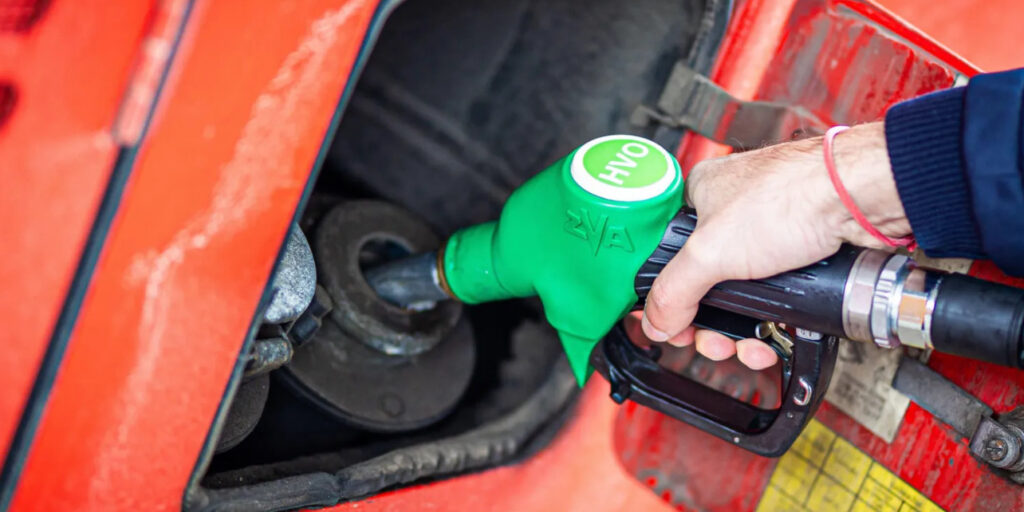The UK government has launched an investigation into suspected fraud in the production of HVO diesel, a fast-growing green fuel that has been touted as a sustainable alternative to traditional diesel.
The probe follows concerns that virgin palm oil is being falsely relabelled as waste material to meet soaring demand.
HVO Diesel Market Faces Scrutiny Over Sustainability Claims
HVO diesel, or hydrotreated vegetable oil, is gaining popularity across the UK and Europe due to its ability to reduce carbon emissions by up to 90%. Marketed as a clean fuel derived from waste products like used cooking oil and palm oil sludge, HVO has seen UK consumption surge from 8 million litres in 2019 to 699 million litres in 2024.
But industry whistleblowers have told the BBC that large volumes of HVO are being produced using virgin palm oil instead of genuine waste. This could undermine HVO’s green credentials and contribute to deforestation and biodiversity loss.
Palm Sludge Waste Figures Don’t Add Up, Data Suggests
Data reviewed by the BBC and shared with the UK’s Department for Transport (DfT) reveals a major discrepancy: Europe reportedly used around two million tonnes of palm sludge waste in 2023, while global production is estimated to be just over one million tonnes. This significant gap suggests non-waste materials are being fraudulently used.
The DfT responded by stating that it “takes the concerns raised seriously” and is working with international partners to gather more evidence.
Whistleblowers Allege Widespread Mislabeling of Palm Oil
Multiple insiders allege that companies are reclassifying virgin palm oil as palm sludge waste to falsely qualify for environmental incentives. One European biofuel producer told the BBC that they are forced to “go along with the pretence” to stay competitive.
Another whistleblower, a former trader, said he had purchased cargoes labeled as waste but believed them to be virgin palm oil. When he raised concerns internally, he claims he was told to drop the matter because “the evidence would be burned.”
Certification Systems Under Fire for Lax Oversight
At the center of the controversy is ISCC, the main certification body that verifies biofuel sustainability claims. While ISCC maintains strict practices in Europe, its ability to monitor suppliers in countries like China, Indonesia, and Malaysia is limited.
“ISCC cannot send inspectors to China,” said Dr. Christian Bickert, a biofuels expert. “They rely on local firms, but oversight is weak.”
Industry and Governments Demand Urgent Action
The European Waste-based and Advanced Biofuels Association acknowledged the certification loophole and called for urgent reforms. Meanwhile, Ireland has already restricted palm-waste-based biofuels, and the EU is reportedly planning to suspend ISCC certifications for two and a half years.
Construction giant Balfour Beatty has refused to use HVO diesel due to transparency issues. “We’re not confident it’s truly sustainable,” said Jo Gilroy, the company’s sustainability lead.
In response to the potential ban, ISCC said it was “more than surprised,” warning the move would deal a serious blow to the waste-based biofuels market.
Conclusion: A Growing Green Fuel Under Global Scrutiny
As HVO diesel continues to rise in popularity, questions about its sustainability and production integrity are mounting. With international scrutiny intensifying, the future of green diesel may hinge on transparency, traceability, and regulatory reform.


